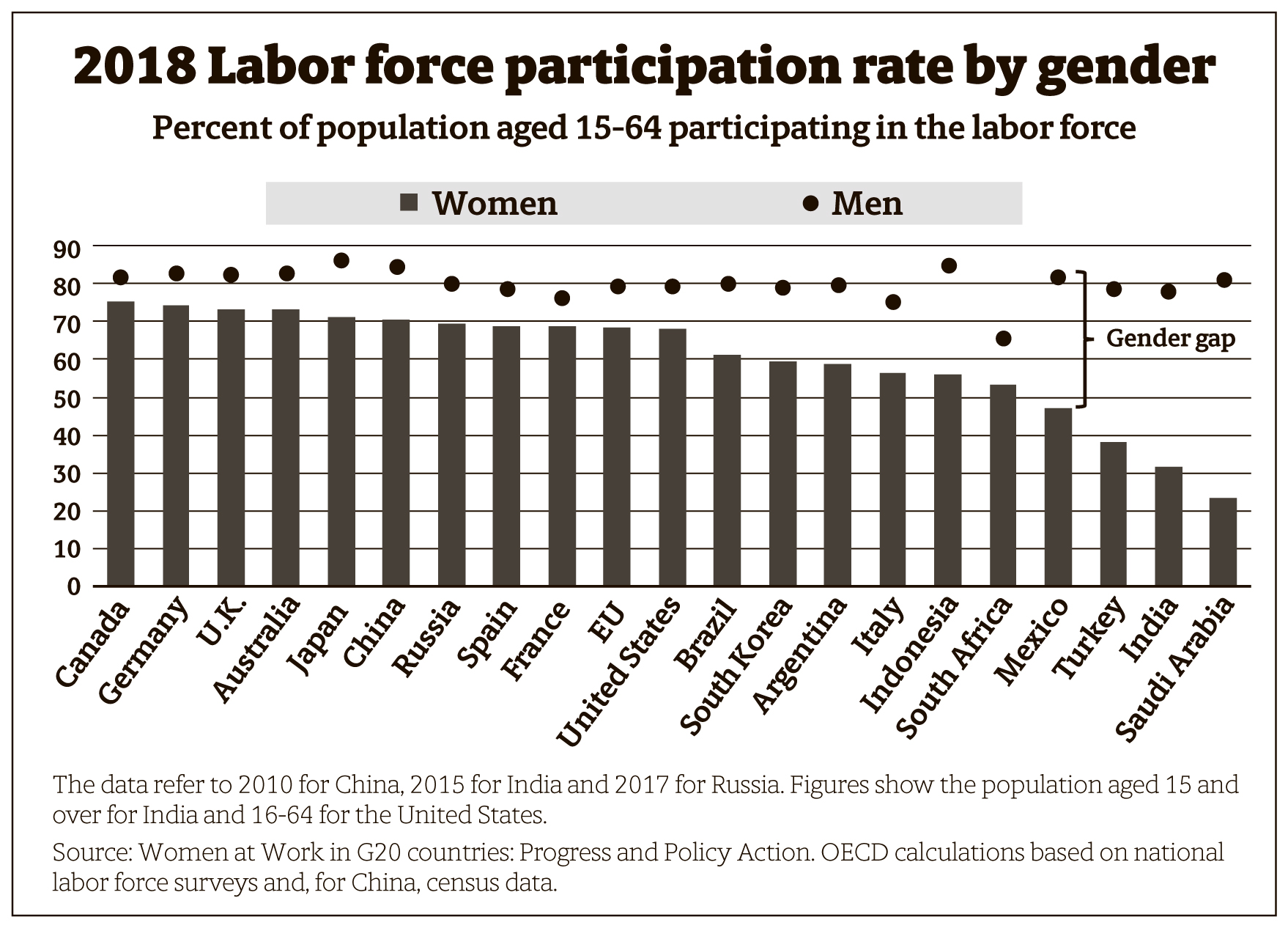On Friday in Osaka, Group of 20 leaders will convene to discuss the most pressing global challenges of our time, and that will include women's empowerment. Prime Minister Shinzo Abe's womenomics push has certainly impressed many, including myself, since it was announced six years ago.
We have come a long way. Gender equality has also become a key priority for the G20, starting in Brisbane in 2014 when leaders made a strong commitment to reduce the gender gap in labor force participation by 25 percent by 2025. This goal, which was championed by the Japanese sherpa and supported by the Organisation for Economic Co-operation and Development, triggered the work of the G20 and Group of Seven on gender issues, and then the creation of the Women 20. Since then, all the G20 presidencies have tackled a gender angle in their agendas.
For those who argued that gender was not a topic for leaders, the economic case was soon made clear. For all G20 countries, strong, sustainable growth will eventually depend on women developing their full potential. The OECD demonstrated the economic benefits of reducing the gender gap in labor force participation, by bringing 100 more million well-educated women into the workforce (as they are achieving a higher tertiary enrollment rate than men) and offsetting the negative impact of shrinking working-age populations in some G20 countries. Since then, the business case for gender equality has been well established.


















With your current subscription plan you can comment on stories. However, before writing your first comment, please create a display name in the Profile section of your subscriber account page.